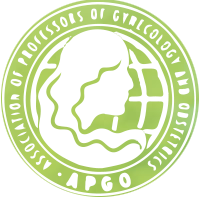Professional Burnout
By Roger Smith, MD
The pace of personal and professional life, the pressures of teaching and practice, changing practice environments, and a sense of loss of control (Who asked for an EMR?) all conspire to make the possibility of professional burnout an almost certainty. Burnout is physical or mental collapse caused by overwork or stress and ALL professionals are at risk of suffering it. Published studies suggest that between 40% and 75% of obstetricians and gynecologists currently suffer from professional burnout. This would seem to be a dismal appraisal of our career choice or that of our learners. The good news is that with some simple tools, we can institute simple strategies to reduce the risk, detect the early signs of burnout and reverse their effects.
Because stress and fatigue are two of the greatest risk factors for burnout, reducing these is a good way to reduce the risk. The solution for fatigue is easy: sleep. But just reducing the number of hours worked is not enough. Physicians tend to sleep fewer hours than the general population and what sleep is achieved is often not the type that is restful and restorative.
There are a number of simple approaches that can be used to reduce stress:
- Alter it (direct communication, problem solving, time management)
- Avoid it (delegate, know your limits, walk away)
- Accept it (build resistance, change your perceptions)
Even though clinicians and educators all have busy schedules, taking short breaks to rest, sing, laugh or exercise can go a long way to reducing stress. Avoiding “baggage” or homework will go a long way to giving perspective from time off. Set meaningful and realistic goals professionally and personally; share chores or get carry-out for dinner.
The symptoms of burnout depend on the stage: early on, physical and emotional exhaustion, fatigue not relieved by rest, and gastrointestinal problems are common. When burnout moves into its middle phases, depersonalization, denial of emerging problems, questioning the value of one’s efforts, a loss of passion for the job and intrusive sleep disturbances are common. In its terminal stages, burnout can become indistinguishable from depression, cynicism and depersonalization becomes pervasive, and social withdrawal is common.
In the early stages, rest and relaxation will go a long way to helping, but so will physical wellbeing, a healthy diet, exercise and health checkups. No one should feel that they should go it alone. Use mentors, friends, and loved ones to provide perspective, balance, and succor. Successful interventions can range from hobbies and vacations, to skilled counseling. Because depression and burnout may be virtually indistinguishable, sufferers seek professional help and counseling from trained counselors, mentors, clergy or others. Self-medication with antidepressants, alcohol or other substances, will only compound the problem. Whatever the route taken, no physician should feel immune, no physician should feel ashamed or alone, and no physician should feel that reversal is not possible to escape the personal and professional collapse that is burnout.


